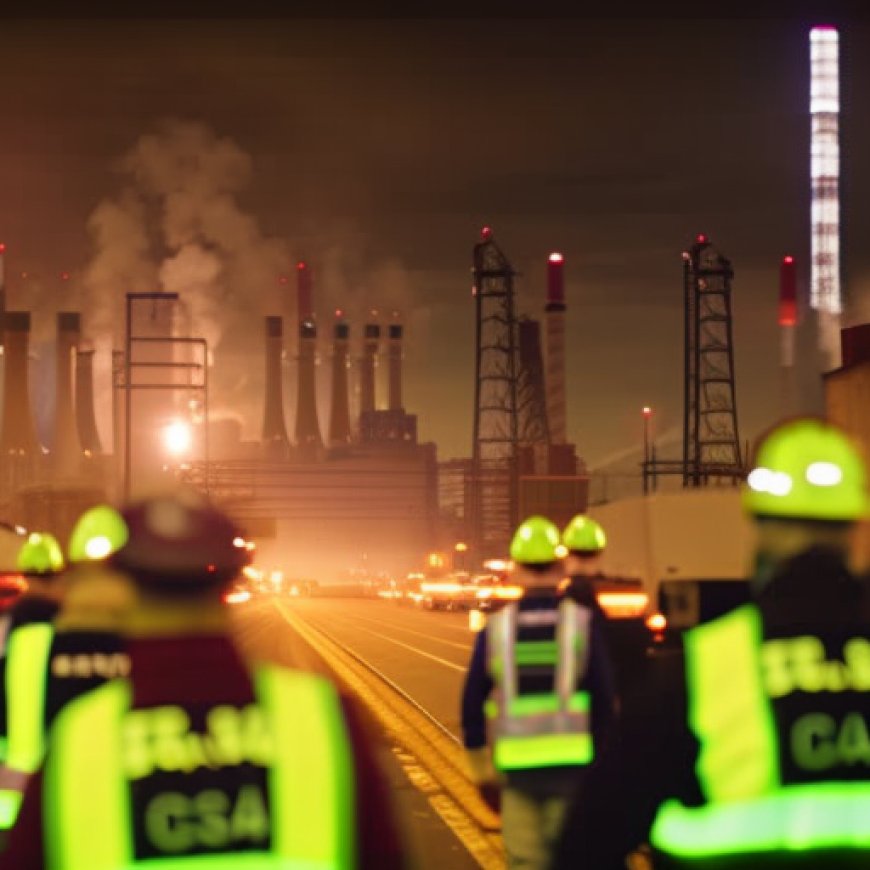A Mississippi community takes on a U.K. energy giant over pollution concerns
A Mississippi community takes on a U.K. energy giant over pollution concerns NBC News


Residents Demand Action from Drax Group to Address Industrial Pollution
During the last weeks of July, a handful of residents from Gloster, a majority-Black, low-income community in southwest Mississippi, prepared for a meeting with Drax Group, a U.K.-based energy company that operates a wood pellet production plant in the small town.
Meeting Cancelled, Community Seeks Action
They planned to present the company with a list of demands meant to address their concerns about the plant’s industrial pollution. Priority items on the list include installing air quality monitors within a quarter-mile of the facility and requiring the plant to cease operations during nighttime hours, per Gloster’s noise ordinances.
But the meeting, like the one before it scheduled for June 2022, was canceled by the company.
“We weren’t really expecting them to answer any of our questions anyways,” said Krystal Martin, a Gloster native and a community leader. “We just want to see action from Drax.”
In an email statement to NBC News, Alex Schott, head of Drax North America communications, said the meeting was canceled due to “an unexpected scheduling clash.”
Yearslong Battle and Environmental Concerns
The canceled meeting is the latest in what has become a yearslong battle between local activists and Drax. Since the facility’s opening in 2016, residents have complained of deteriorating air quality and health, and the state’s environmental regulator has twice issued notices to Drax regarding violations of air pollution regulations.
The company’s Gloster facility is one of many such plants in the American South, which is the world’s wood pellet manufacturing hub. Wood pellets have been embraced by European countries in recent years in the movement toward “biomass” or “biofuels” as an alternative to fossil fuels, accelerated by Russia’s invasion of Ukraine.
Sustainable Development Goals and Environmental Impact
Biomass fuels like wood pellets are broadly seen as renewable and carbon-neutral sources of energy, particularly in the European Union, where wood pellets are used mostly for electricity generation and even count toward the E.U.’s renewable energy targets for 2030. In 2022, Drax also received about $2.2 million a day in U.K. government subsidies to produce clean energy, according to Sky News.
In recent years, the biomass industry has come under increasing scrutiny. Many environmental groups argue that wood pellets are even worse than fossil fuels in terms of releasing carbon emissions.
Schott said sustainable biomass releases less carbon than alternative fuels, but a report from the Rachel Carson Council, an environmental nonprofit, found that burning wood pellets releases 65% more CO2 than coal, which is widely regarded as the dirtiest energy source.
Still, the wood pellet industry enjoys a reputation for sustainability, said Robert Musil, president and CEO of the Rachel Carson Council. Musil said that status is inflated by Drax’s efforts to market itself as a climate solution.
Community Impact and Environmental Justice
Drax first announced its plans to build its Gloster facility in 2013 and touted the project as a way to bring jobs to an area with few economic prospects. Drax said in an email that it created 70 permanent jobs at the Gloster facility and that 82% of wages go to employees living in rural Mississippi communities. Martin said only a few locals received work at the plant.
The situation has also caught the attention of environmental justice advocates who say Gloster is another example of air pollution disproportionately affecting communities of color. In September, Katherine Egland, a member of the board of directors of the NAACP, told Greenpeace that the plant and its U.K. government subsidies were perpetuating “environmental racism” because Gloster is a majority-Black community. Drax told Greenpeace that community safety was a top priority.
Environmental Impact and Regulatory Actions
At the Drax plant, wood pellets are manufactured by turning wood into wood chips, drying the chips, then grinding them into a fine powder, which is shaped into pellets. In this process, Drax releases a range of pollutants.
Drax’s recent permit applications, which were submitted to the Mississippi Department of Environmental Quality and have been reviewed by NBC News, state that the plant emits several hazardous air pollutants, a group of chemicals regulated by the federal government for their potential to cause cancer and other serious health impacts, as well as volatile organic compounds, a group of pollutants that include substances that can cause liver, kidney, and central nervous system damage.
Such emissions are legal in certain quantities as long as companies operating industrial plants receive a permit from the state. Drax currently has a permit to operate as a minor source of hazardous air pollutants and volatile organic compounds, which allows the company’s plant to emit less than 25 tons of hazardous air pollutants and 249 tons of volatile organic compounds per year.
It’s those emissions that have been the target of local activists, environmental groups, and state regulators. In 2020, the Mississippi Department of Environmental Quality fined Drax $2.5 million for violating its permit’s annual limits on the release of volatile organic compounds. Drax said the company has taken the appropriate steps to come into compliance with volatile organic compound limits.
Outside Mississippi, Drax agreed to $3.2 million in state penalties in Louisiana just last year for air pollution violations, though it did not admit any wrongdoing.
In March, the Mississippi Department of Environmental Quality issued a notice of violation to Drax, saying its plant exceeded air pollution limits for emissions coming from the plant. The notice alleges that since April 2022, Drax has been operating without a permit as a “major source” polluter by emitting more than 25 tons of hazardous air pollutants annually. Schott, head of Drax North America communications, said the company is working with environmental consultants to come into compliance.
The Mississippi Department of Environmental Quality’s next step after issuing the notice and receiving a response is to reach an amicable agreement with the company on the violations, then ultimately decide on the appropriate penalty.
If no agreement is reached, the department escalates the matter to the Mississippi Commission on Environmental Quality. Generally, repeat violations mean stronger penalties that may even affect a facility’s permit renewal.

Join us, as fellow seekers of change, on a transformative journey at https://sdgtalks.ai/welcome, where you can become a member and actively contribute to shaping a brighter future.







